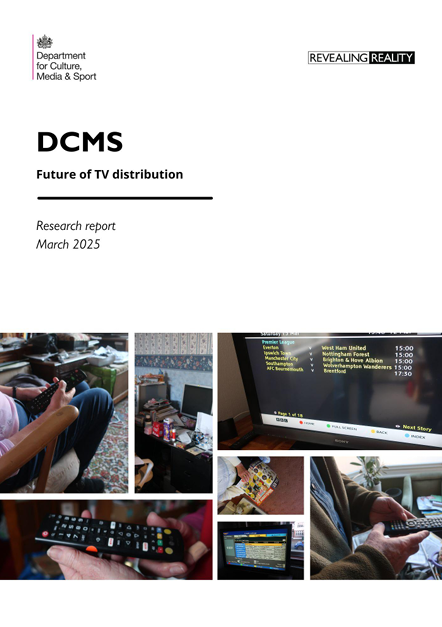Revealing Reality was commissioned by The Department for Culture, Media and Sport to examine the implications of a hypothetical Digital Terrestrial Television (DTT) switch-off and the potential barriers to adopting Internet Protocol Television (IPTV).
We conducted in-depth interviews with 100 participants across diverse demographic backgrounds. Researchers explored how television fits into participants’ daily lives and the possible barriers/enablers to making the hypothetical switch to IPTV through both in-home and remote interviews, ensuring inclusion of participants with low digital skills or no internet access.
Most people were open to adopting IPTV but lacked motivation to make the hypothetical switch
The findings revealed that most participants were relatively unconcerned about a hypothetical DTT switch-off. Many felt confident they could manage the transition with appropriate information and support from their existing networks. When reservations were expressed, they often stemmed from misconceptions rather than fundamental barriers. Notably, many participants were already receptive to IPTV technology but simply lacked sufficient motivation to make the switch proactively.
Those with overlapping barriers would need more support to make the hypothetical switch
However, for a few, the adoption of IPTV would be more challenging. The most significant barriers were technical ability, financial constraints, and technical infrastructure. These did not exist in isolation – some participants faced just one of these challenges, while others experienced a combination that made switching significantly harder. Our findings suggest that the more these barriers overlap, the more difficult they are to overcome
This research will serve as a foundational evidence base for government policy development regarding any hypothetical DTT switch-off, helping to ensure no one would be left behind.

